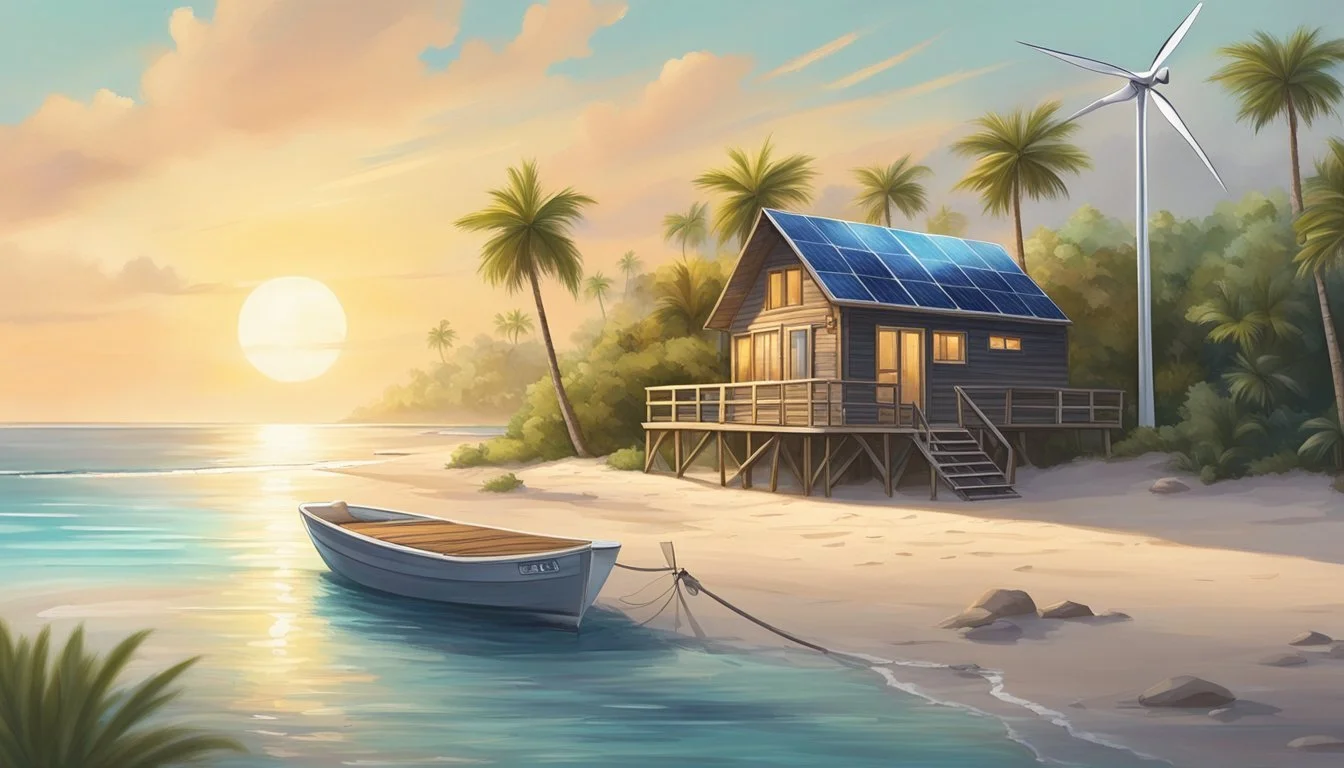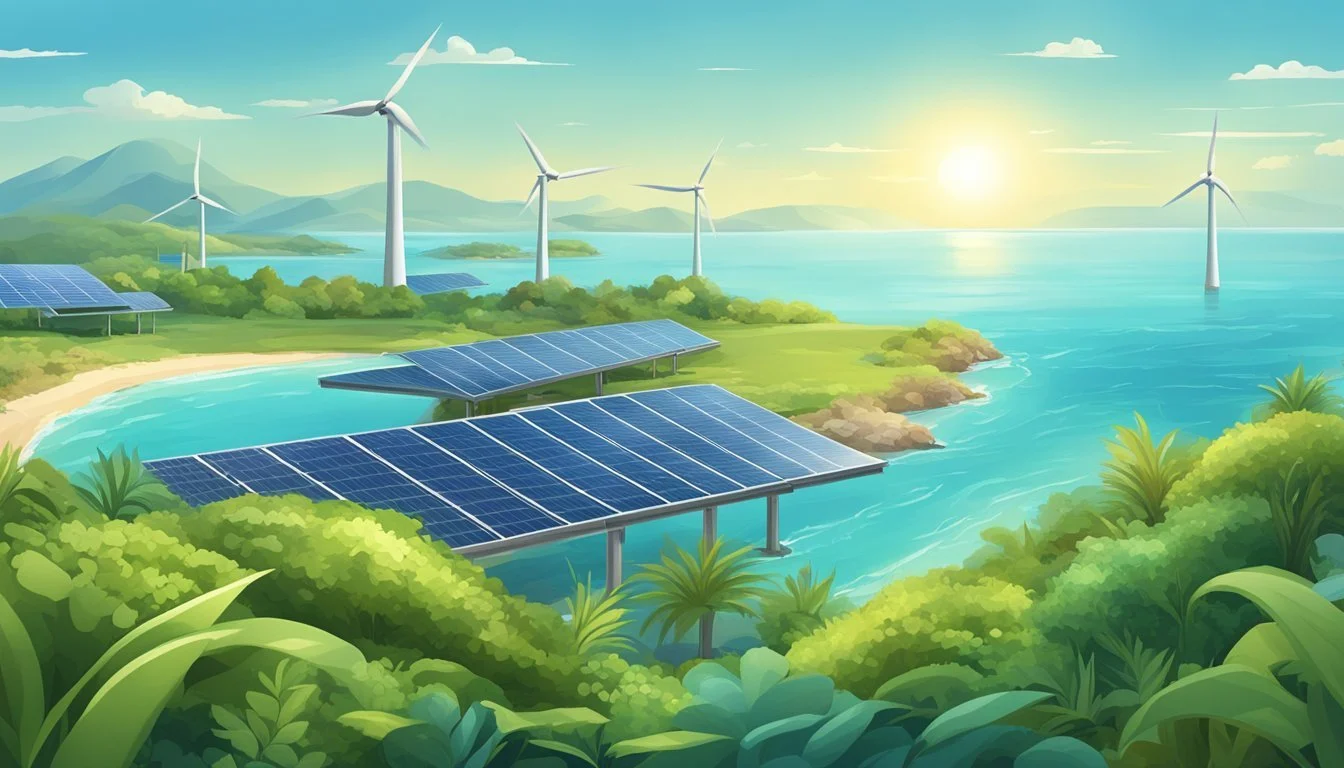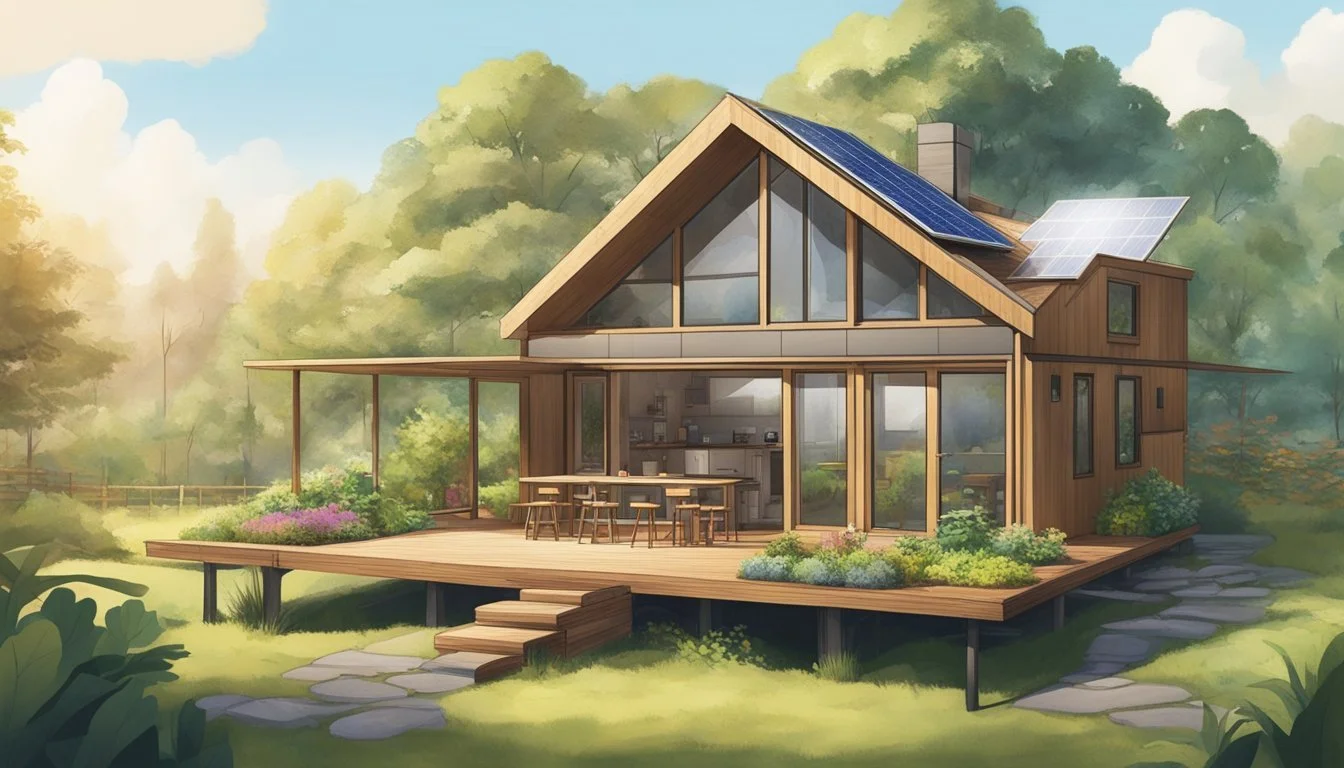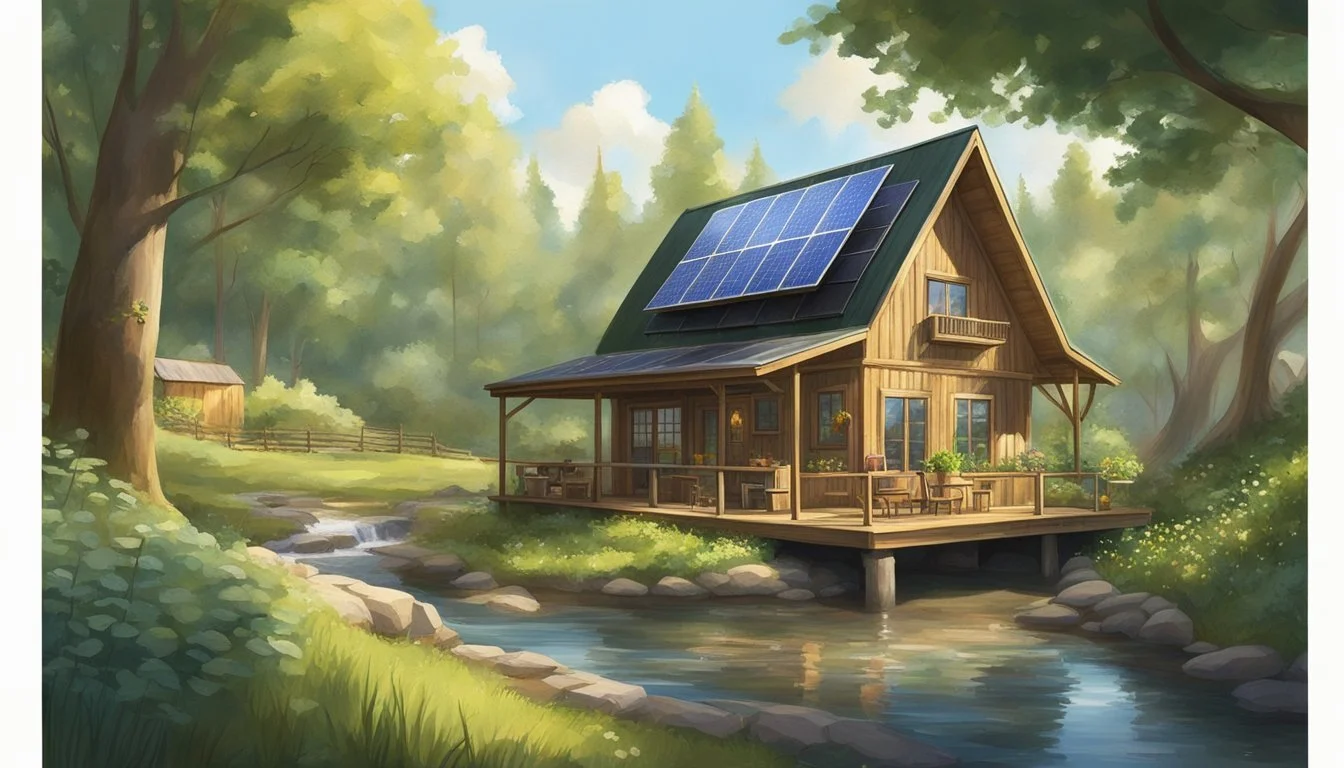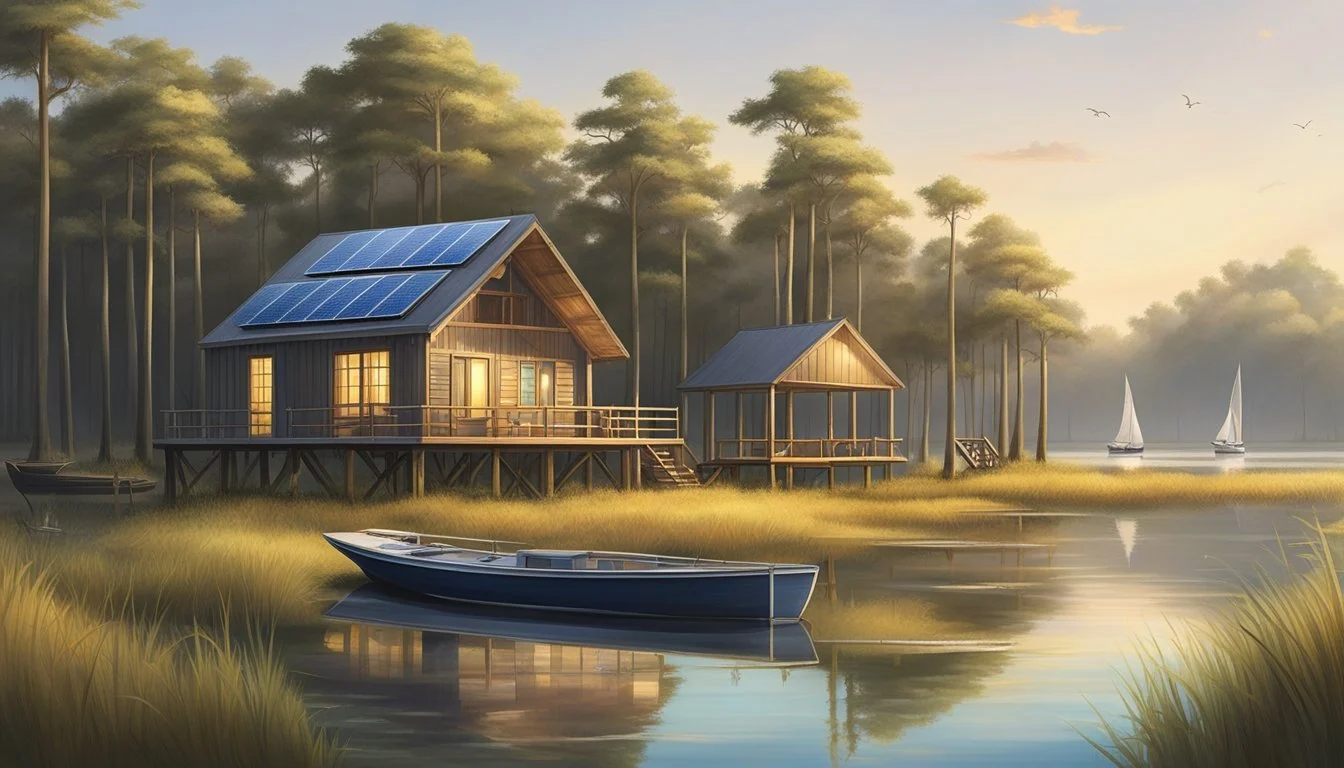Gulf Coast Off Grid Living
A Comprehensive Guide to Sustainable Independence
For those seeking a serene and self-sufficient lifestyle, Gulf Coast off-grid living offers an ideal blend of natural beauty and practical sustainability. The Gulf Coast, with its mild climate and abundant natural resources, is a prime location for establishing an off-grid home. Many available properties offer proximity to the coast while being sufficiently remote to facilitate a self-reliant way of life.
Key benefits of off-grid living on the Gulf Coast include access to renewable energy sources like solar and wind power, as well as ample opportunities for gardening and fishing. Whether nestled in the untouched wilderness or located on an isolated beach, residents can enjoy an eco-friendly and independent lifestyle, free from the constraints of urban living.
While adapting to county-specific regulations is necessary, these areas provide a fulfilling environment for those dedicated to minimizing their carbon footprint and connecting more deeply with nature. The Gulf Coast stands out as a compelling choice for anyone interested in off-grid living due to its unique combination of natural resources and sustainable living potential.
Why Choose Gulf Coast for Off-Grid Living
The Gulf Coast offers a unique combination of natural beauty and favorable climate that makes it an attractive choice for off-grid living. Additionally, the diverse ecosystem and abundant wildlife enhance the appeal for those seeking a self-sufficient, nature-centric lifestyle.
Natural Beauty and Climate
The Gulf Coast boasts breathtaking landscapes, ranging from pristine beaches and coastal dunes to lush forests. In areas like Gulf County and the Forgotten Coast, residents can enjoy scenic views and serene environments.
The Apalachicola National Forest provides ample opportunities for outdoor activities such as hiking, fishing, and camping. The region's natural springs and lakes offer fresh water sources, which are essential for off-grid living.
The climate is another attractive feature. The Gulf Coast experiences mild winters and warm summers, making it easier to maintain an off-grid lifestyle. With abundant sunshine, it's ideal for solar energy systems, while the balmy weather supports year-round gardening and farming.
Diverse Ecosystem and Wildlife
The Gulf Coast is home to a remarkably diverse ecosystem. Areas in rural Florida, especially near natural parks and preserves, teem with wildlife. This includes a wide variety of bird species, marine life, and terrestrial animals.
Living off-grid in this region offers the chance to coexist with nature. Natural springs and wetlands are habitats for many species, providing natural resources like fish and fresh water. This biodiversity supports sustainable living practices, such as growing native plants and harvesting local resources.
By choosing the Gulf Coast, off-grid enthusiasts can immerse themselves in an environment rich in natural beauty and ecological diversity, ensuring a fulfilling and sustainable lifestyle.
Finding the Right Land
Selecting the right land for off-grid living on the Gulf Coast involves evaluating counties and understanding the acquisition process. Key considerations include land features, cost, legal compliance, and the availability of natural resources.
Evaluating Land in Gulf Coast Counties
When evaluating land in Gulf Coast counties, research is crucial. Areas like Liberty County offer seclusion, with low population density and dense forestry. Okeechobee County presents opportunities for living near Lake Okeechobee with access to abundant natural resources.
Madison County and Glades County provide significant rural acreage, conducive to off-grid living and self-sustenance.
For those interested in affordability, Suwannee County and Columbia County have lower land prices, making them attractive options. Proximity to natural water sources such as rivers and lakes is also vital for sustainable living. Realtors can offer insights into available properties, ensuring buyers find lands suitable for their specific needs.
Land Acquisition Process
The land acquisition process starts with detailed research and consultation with a real estate agent. Search for land for sale in Florida through local listings, including realtors who specialize in rural and off-grid properties.
Lee County and Highlands County are known for offering varied land sizes, often advertised as acreage for sale. Investigate the legalities of developing off-grid properties; this includes zoning laws, building codes, and access rights.
Negotiation and land inspection are critical steps to ensure the land meets personal and practical requirements. Secure financing options, if necessary, and prepare for any regulations specific to off-grid living, like water rights and renewable energy installations. Proper due diligence can lead to a smooth acquisition process and a successful off-grid lifestyle on the Gulf Coast.
Building an Off-Grid Home
Constructing an off-grid home requires careful planning and consideration. Essential aspects include initial setup costs, using sustainable building materials, and adhering to legal regulations.
Initial Setup and Costs
Setting up an off-grid home involves a range of expenses. Initial costs often include land purchase, obtaining necessary permits, and investing in essential infrastructure. Power systems like solar panels, wind turbines, and battery storage are critical. Depending on the location and home size, these systems can range from a few thousand to tens of thousands of dollars. Other costs include water collection systems, septic systems, and initial construction expenses.
Maintenance is another factor, involving ongoing costs to keep power and water systems operational. Considering upfront and long-term costs helps ensure the feasibility of an off-grid lifestyle.
Sustainable Building Materials
Using sustainable building materials is key to reducing environmental impact. Eco-friendly options include reclaimed wood, recycled metal, and natural insulation materials like sheep's wool or cellulose. Straw bales and cob (a mix of clay, sand, and straw) are also popular for their insulation properties and low environmental footprint.
Selecting local materials reduces transportation costs and supports regional economies. Additionally, materials like adobe and rammed earth provide thermal mass, helping to maintain indoor temperatures. Integrating these materials contributes to sustainability and energy efficiency, both of which are crucial for off-grid living.
Legal Considerations
Complying with local building codes and regulations is essential. Laws vary by county and state, so research and consultation with local authorities are necessary. Some areas may have specific requirements for waste disposal, such as septic systems, and energy systems like solar or wind installations.
Permits for water use, building structures, and off-grid systems need to be obtained to avoid penalties. Understanding these legalities ensures that the off-grid home is both legally compliant and sustainable. Ignoring local regulations can result in fines or forced modifications, making legal understanding crucial.
Water and Food Self-Sufficiency
Living off the grid on Florida's Gulf Coast requires careful planning for water and food self-sufficiency. By concentrating on rainwater harvesting methods and sustainable food practices, residents can maintain a consistent supply of essential resources.
Rainwater Harvesting Methods
Rainwater harvesting is crucial for securing a water supply. Install roof-mounted storage tanks to collect rainwater efficiently. These tanks should be paired with filtration systems to ensure safe drinking water, removing impurities effectively.
Materials needed:
Storage tanks – Positioned on rooftops.
Filtration systems – To purify collected water.
Gutters and downspouts – Direct rainwater into storage tanks.
A typical system involves diverting rainwater from the roof into a storage tank, which then passes through multiple filtration stages. Solar panels can power pumps, ensuring water is accessible even during dry seasons. This setup supports household needs from drinking to irrigation.
Sustainable Food Practices
Self-sufficiency in food involves cultivating a garden rich in fruits, vegetables, and even staple crops like rice. The Gulf Coast's climate is favorable for various produce, including tomatoes, peppers, and citrus fruits. Raised beds and container gardening can maximize space and yield.
Key steps:
Select crops – Choose plant varieties adapted to the local climate.
Implement irrigation – Use drip systems powered by solar energy.
Rotate crops – Ensure soil fertility and reduce pests.
Additionally, maintaining small livestock like chickens can provide meat and eggs. Composting organic waste enriches the soil, promoting healthier crops. Sustainability is enhanced by preserving and canning produce during harvest peaks, ensuring a year-round food supply.
Energy and Resources
Living off the grid on the Gulf Coast requires smart use of available natural resources, particularly when it comes to harnessing solar energy and managing everyday essentials efficiently.
Solar Energy Solutions
The Gulf Coast's ample sunlight makes it ideal for generating electricity with solar panels. Solar energy systems can provide a significant portion, if not all, of the power needs for an off-the-grid home. Installing photovoltaic (PV) panels allows residents to capture solar energy and convert it into electricity.
Battery storage solutions are crucial for maintaining energy supply during the night or on cloudy days. These systems store excess power generated during the day for use when sunlight is not available. Investing in high-quality inverters and charge controllers ensures efficient energy conversion and system durability.
Additionally, positioning the solar panels to maximize sun exposure throughout the day is essential. Regular maintenance, such as cleaning the panels and checking connections, helps maintain efficiency and longevity. The combination of sunlight, proper equipment, and diligent upkeep forms the cornerstone of a reliable solar energy solution on the Gulf Coast.
Managing Resources Efficiently
Effective resource management is key to achieving self-sufficiency in off-the-grid living. Water collection systems, such as rainwater harvesting, can provide a steady supply of water. Proper filtration systems ensure the water is safe for drinking and other household uses. Composting toilets and greywater recycling further reduce water usage and waste.
Energy-efficient appliances help minimize electricity consumption. Items such as LED lighting, energy-star rated refrigerators, and low-energy cooking devices can make a significant difference. Limiting the use of high-energy amenities during peak hours conserves stored energy for essential tasks.
Growing food on-site reduces dependence on external resources. Implementing permaculture principles can create sustainable and productive gardens that require minimal input. Livestock, like chickens, can also provide a renewable source of food and fertilizer.
By focusing on these strategies, off-grid residents can achieve a comfortable and self-sufficient lifestyle on the Gulf Coast.
Lifestyle and Community
Living off-grid along the Gulf Coast provides a unique opportunity to cultivate a self-sufficient community and embrace a life of freedom and independence. This lifestyle fosters a deep connection with nature and encourages strong community bonds.
Cultivating a Self-Sufficient Community
An off-grid community thrives on cooperation and mutual support. Residents often share skills such as gardening, water collection, and renewable energy maintenance.
By growing their own food, they reduce dependency on external resources. Many use solar panels or wind turbines, sharing surplus energy with neighbors.
Shared projects and communal spaces, like workshops or gardens, further strengthen community ties. Bartering is common, with residents exchanging goods and services. For instance, fresh produce might be swapped for homemade crafts or other essentials.
Embracing Freedom and Independence
Off-grid living on the Gulf Coast allows residents to design their lifestyles around personal values. Many choose this path to escape conventional societal constraints.
They enjoy the freedom to build homes that suit their needs, often using sustainable materials. The lack of reliance on public utilities fosters a sense of independence.
Residents manage their resources, from water filtration to waste disposal. This autonomy promotes a profound connection with nature, as individuals become more aware of natural cycles.
In this environment, freedom is balanced with responsibility, emphasizing sustainable living and respect for the ecosystem.
Adapting to Off-Grid Challenges
Living off the grid along the Gulf Coast presents unique challenges, particularly when dealing with Florida's climate and preventing issues like mold and rot. Success requires careful planning and continuous maintenance.
Dealing with Florida's Climate
The Gulf Coast's climate is characterized by high temperatures and humidity, necessitating adaptive strategies to maintain comfort and functionality. Heat management is crucial. Utilizing natural ventilation, such as strategically placed windows and vents, helps to circulate air and reduce indoor temperatures.
Vegetation and shading are also valuable. Planting trees and shrubs can create natural shade, lowering temperatures around living spaces. Reflective roofing materials and light-colored exteriors can further minimize heat absorption.
In addition, water management systems are essential to cope with frequent rainfall. Implementing rainwater harvesting systems and ensuring proper drainage prevents potential flooding and maintains a steady water supply during drier periods.
Preventing and Managing Mold and Rot
The humid climate poses a significant risk of mold and rot, which can compromise structures and health. Routine inspections are vital; checking for signs of moisture buildup and leaks allows for early detection and prevention.
Using moisture-resistant materials is also an effective strategy. Employing treated wood and composite materials in construction can reduce susceptibility to rot. Regularly applying sealants and protective coatings adds another layer of defense against moisture.
Maintaining proper ventilation is key. Installing dehumidifiers, exhaust fans, and ensuring adequate airflow can significantly reduce indoor humidity levels, thereby preventing mold growth. Integrating these measures into daily maintenance routines ensures a resilient and safe off-grid living environment.
Legacy and Future Planning
When living off-grid on the Gulf Coast, it’s essential to consider how to create a sustainable and resilient lifestyle that can be passed down through generations. This includes establishing a robust living environment and ensuring land and knowledge are shared effectively with future heirs.
Creating a Resilient Living Environment
Building a resilient off-grid living environment requires careful planning and sustainable practices. To achieve self-sufficiency, individuals should maximize the use of renewable energy sources such as solar or wind power. Water collection systems, like rainwater harvesting and filtration, are crucial for ensuring a reliable water supply.
Gardening practices must focus on permaculture principles, which promote biodiversity and soil health. It's also vital to design homes and structures that withstand the coastal climate's unique challenges, including high humidity and hurricane risks. For instance, using durable materials and incorporating storm-resistant features can enhance longevity and safety.
Implementing these strategies not only ensures immediate survival and comfort but also builds a lasting legacy of independence and environmental stewardship for future generations.
Passing on Knowledge and Land
Passing on land and knowledge are key components in maintaining the legacy of off-grid living. A critical first step is to secure land ownership through clear legal means, ensuring it can be easily transferred to heirs. Documenting the land’s title, usage rights, and any conservation easements is essential for legal clarity.
Education plays a pivotal role in legacy planning. Documenting sustainable practices and skills in written manuals or digital formats preserves vital information. Hosting workshops and creating mentorship opportunities facilitate the transfer of practical knowledge to younger generations.
Such approaches ensure that the philosophies of sustainability, resilience, and self-sufficiency are not lost but continue to thrive. This guarantees that the land remains productive and that each successor is well-equipped to maintain and build upon the established foundations.
Off-Grid Adventures in the Gulf Coast
The Gulf Coast offers unique opportunities for off-grid living, brimming with diverse ecosystems and natural attractions. From seclusion in Apalachicola to the distinct ambiance of Pine Island, the Gulf Coast caters to those seeking an off-grid adventure.
Exploring Natural Attractions
The Gulf Coast is home to Apalachicola, an area renowned for its rich biodiversity and pristine natural settings. Visitors can explore expansive marshlands, estuaries, and forests. These environments support a multitude of wildlife, such as diverse bird species, fish, and various plant life.
There are opportunities for kayaking, fishing, and hiking along scenic trails. Apalachicola National Forest provides ample space for these activities. Disconnecting from urban life here means immersing oneself in nature’s rhythms and enjoying tranquil environments.
Living the Gulf Coast Off-Grid Dream
Living off-grid on the Gulf Coast often starts with selecting a location that offers isolation and natural beauty. With places like Pine Island, residents can enjoy remote living, surrounded by water and diverse ecosystems. This island near Fort Myers is known for its slower pace and abundant nature.
Residents can rely on renewable energy sources such as solar panels. They often grow their own food and use rainwater collection systems. The Gulf Coast attracts those who want to embrace a sustainable, self-sufficient lifestyle away from the urban hustle.



